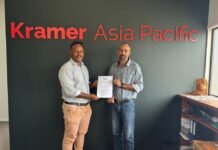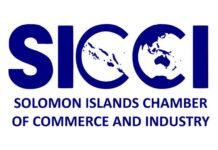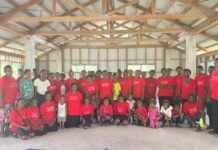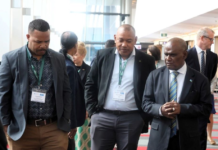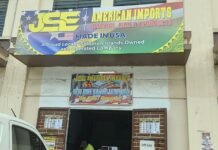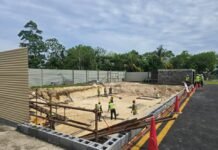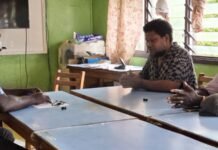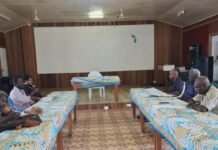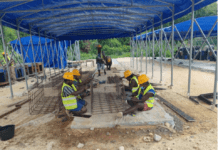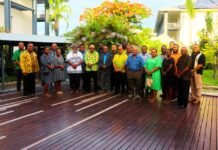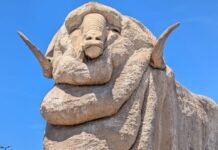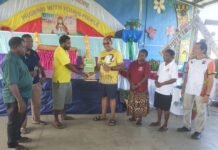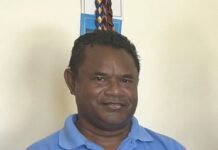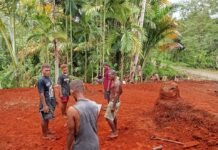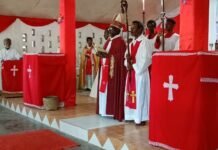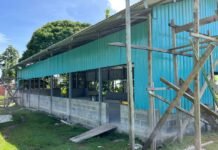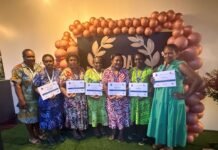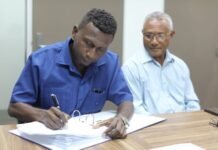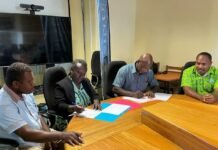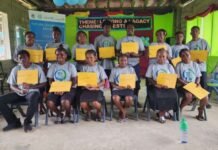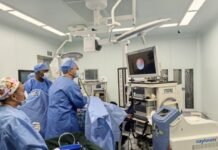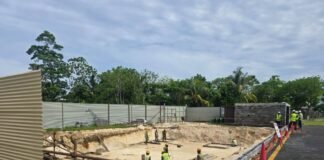
BY JOHN HOUANIHAU
THE British High Commissioner to the Solomon Islands, his Excellency Thomas Edward Coward, praised the vital work of the Solomon Islands journalists in the 2024 joint elections.
Coward expressed positive comments at the mobile journalism (mojo) workshop training for MASI members at the King Solomon Hotel in Honiara, concluding the five-day training.
The training was funded by the British Government through a partnership between BBC Media Action through its ‘Media Strengthening in Solomon Islands Project’ and the Media Association of Solomon Islands (MASI) on how to help journalists and media professionals do their work in the country.
“The work that Solomon Islands journalists do is so important. And it’s been proven and shown how important it was to the election. Now, I often give some very high-level discussion of what journalists do, depending on what we’re talking about.
“It is always fantastic to work with journalists in the Solomon Islands. Of all the things that I have done in my time as High Commissioner here, this work with journalists in the Solomon Islands, with the BBC, in partnership with MASI, and all the journalists is some of the most rewarding and important work I’ve done, and that’s because you are fantastic.
“Look, you bring us together. You keep us informed and you share our stories, and that’s really important,” His Excellency Coward said.
Journalists from the mainstream media have discovered the benefits of mobile journalism (mojo) in helping to tell the country’s most important stories. The training course taught journalists about Rule of third, shot sizes, camera angles, camera movements, crossing the line, how to film with a mobile without a tripod, how to use VN editing app, how to use open camera app, how to use filmic pro paid app, how to use Lumafusion paid app, how to use Davinci Resolve, how to use StreamYard, exposure triangle, how to do interviews and other mobile stuff.
He said that the Solomon Islands are a large nation that occupies a large area.
“And actually, we forget—you know, it’s a long way from Tikopia to the Shortland Islands. People are different. But there’s so much that unites us.
“And that’s what Solomon journalism can do. It can bring us together. It can bring us together across the country. It keeps us informed,” Coward revealed.
He said that there’s so much going on across the country, and we only see a small amount of it.
“The international community sees so little of what happens here. Little of what is brilliant about the Solomon Islands. What are people doing? About the progress being made. About the communities: About who are they? But we see so little of it as well. We don’t see enough. We don’t see enough about what’s happening in Lata. Or what’s happening in Guadalcanal? And the capital. I mean, what’s happening in the Shortland today? So, that is why your work is important. Our stories unite us,” he said.
“Our stories inform us. Our stories help us discuss each other and move forward. So, it’s important that we know our stories. That we share our stories. And that others can see our stories from shore to shore. And outside our shores. Which is why I was so pleased when Dipak started talking about mobile journalism. Because, you know, this kind of journalism can really help us push forward. Your phone is easier. And it’s agile. It’s accessible. You know? As phones spread across the country, it means that more people can get involved.
“And more people can support uniting us. And telling stories and bringing us together. But also, as mobile phones and other things spread across the country, the audience gets bigger. As mobile phones spread and the cost of the internet comes down, there are new ways of connecting people to get information in and send information out.
“So the work that you’ve been looking at this week is a way of getting your stories out. To people in the Solomon Islands outside of the Solomon Islands. And for them to work with you to get these stories together and get them out.
“So thank you. Because your work is fantastic. I hope this has been useful in pulling it forward. I want to finally just thank Dipak Bhattarai and the BBC Action Team for all they do together with you. And thanks most to you for kindly coming and participating. And continuing to push the boundaries of what this country does. Which is truly brilliant. So thank you,’’ Coward said.
Dipak Bhattarai, a journalist, media trainer, and project manager, is currently the Project Director at BBC Media Action, residing in Honiara, focusing on media for development and public interest media.






